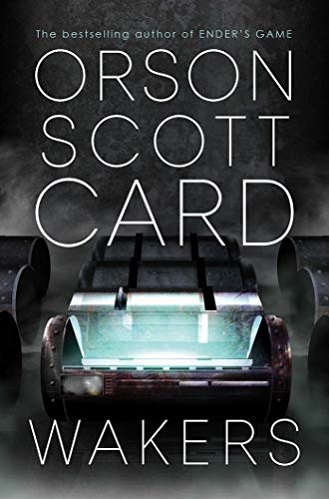Laz is a side-stepper: a teen with the incredible power to jump his consciousness to alternate versions of himself in parallel worlds. All his life, there was no mistake that a little side-stepping couldn’t fix.
Until Laz wakes up one day in a cloning facility on a seemingly abandoned Earth.
Laz finds himself surrounded by hundreds of other clones, all dead, and quickly realizes that he too must be a clone of his original self. Laz has no idea what happened to the world he remembers as vibrant and bustling only yesterday, and he struggles to survive in the barren wasteland he’s now trapped in. But the question that haunts him isn’t why was he created, but instead, who woke him up…and why?
There’s only a single bright spot in Laz’s new life: One other clone appears to still be alive, although she remains asleep. Deep down, Laz believes that this girl holds the key to the mysteries plaguing him, but if he wakes her up, she’ll be trapped in this hellscape with him.
This is one problem that Laz can’t just side-step his way out of.
I have one problem with the above synopsis, and it’s not that it makes the book out to be a carbon copy of Passengers. It’s just… inaccurate.
I went into this book with a cautious sort of optimism, and I was rewarded well. What reads as just another young-adult Adam-and-Eve story blossoms into a far more fleshed-out sci-fi tale (if you can make it past the first fifty pages without a single line of dialogue). The setting in particular shines in this book, especially before Laz meets Ivy.
After the aforementioned plot point, though, I spent much of my time utterly confused. I enjoyed the way Laz and Ivy worked together and learned about their combined power, and especially their dynamic once Ivy-O came into the picture, but the more time our two main characters spent together, the less I liked them. Even through to the end of the book, I never understood many of the things they did or said to each other, seemingly at random. Laz feels in equal parts: horny teenager, misunderstood genius, antagonistic hell-raiser and antisocial hermit. Ivy has just as many facets: manipulative snake, damsel-in-distress, bossy leader and subservient. It’s not impossible to pull these off — in fact, I think Card did a decent job — but they can’t have all these different personalities without any explanation.
The last third of the book redeemed it. Once we were in a wider world with more characters and a more chaotic atmosphere, Card pulled out the huge sci-fi brain I was hoping for. The thoughts of timestreams, parallel existences, gravity, portals and so much else freed him from what I could only think of as a romance box. He’s so obviously in his element writing high-concept sci-fi that I almost thought of this section of the book as a whole separate story from the rest of it. The issues, both scientific and ethical, were thought-provoking and refreshing.
Of course, there’s a catch.
The synopsis, as well as the whole book before page 98, did nothing to prepare me for the actual plot of this book. So, by page 103, I had to put the book down and completely rethink how I would approach it. Within a few minutes of reading, the book went from small-concept, survive-in-a-dead-world to a massive, time-space-bending narrative that required a whole different thought process to read. For the first third of the book, I never even entertained the possibility that it could spiral into what happens in the final third. I understand why the first third was important, but the plot twist made so little sense to me at the time that it threw me off guard for a good chunk of the novel.
What could just as easily be a positive point as a negative one is the general lack of gripping emotion in the prose. The only feeling I could really conjure from the page was anger when Laz was angry, and that was it. The romance, while not pointless, was written as if Card wasn’t completely sure what it felt like, and it contributed to a general lack of feeling and a couple of points where I wasn’t even sure whether Laz and Ivy had been kissing or not. While this works perfectly with Laz’s character, or at least OrigiLaz’s, it makes it hard for the reader to connect with the romance if it’s written in a non-relatable way.
To sum it up: the big-brain sci-fi carries this book to a four-star rating. The scientific and ethical sides to the book were interesting, and definitely made me jot a fair few note in the margins, but they weren’t totally enough to make up for the awkward romance and generally non-relatable characters. It’s not a cozy read, but it’ll stretch your brain in refreshing ways.
Enjoy the read!
-Matt Shipley


